 |
| US cover |
The launch of a new book is always a busy time and since The Gathering of the Lost (The Wall of Night Book Two) was published on 27 March I've had a very full programme of guest blog spots and interviews, including recent get togethers with both Nalini Singh, here, and Robin Hobb, here.
And right now I’m attending UnConventional, NZ's National Science Fiction Fantasy Convention, with Trudi Canavan as international Guest of Honour. I have an interesting programme of panels, too, including one on world building:
"Worldbuilding — The thing that differentiates SF & F from the rest of fiction writing is the extent to which worldbuilding becomes integral to the writing process."
Since you can't attend the panel, I thought you might like to read this summary from my in-depth conversation with Robin Hobb, specifically on world building:
.
"Helen: Good world building is integral to Fantasy. What are some of the key elements for you, Robin?
.
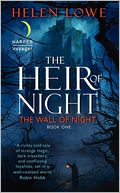 Robin:
‘Would the world work?’ is my first question. If there is no visible
economy, government, religion or culture, I tend to just set it aside.
Ignorance of simple ‘real world’ facts also frustrates me. For example,
learning to wield a sword in two days is like picking up trigonometry in
half-an-hour!
Robin:
‘Would the world work?’ is my first question. If there is no visible
economy, government, religion or culture, I tend to just set it aside.
Ignorance of simple ‘real world’ facts also frustrates me. For example,
learning to wield a sword in two days is like picking up trigonometry in
half-an-hour!
The reason your The Heir of Night books work
for me is that every character is a product of your world. Each culture,
and consequently each character, is clearly a product of the
surrounding environment. As a result they are distinctive, far beyond
just names and physical descriptions.
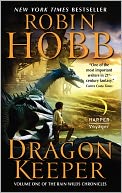 Helen:
My world building is very organic. There is often an initial vision,
such as the twilit, wind-blasted Wall, but after that the world evolves
through the characters’ experience of it. The world has to be real for
the characters or otherwise it just won’t work.
Helen:
My world building is very organic. There is often an initial vision,
such as the twilit, wind-blasted Wall, but after that the world evolves
through the characters’ experience of it. The world has to be real for
the characters or otherwise it just won’t work.Similarly, the Rain Wilds are my favorite of your worlds. I love the mysterious, dangerous physical environment and its juxtaposition with Trader culture. But has your vision of the world changed in the shift from the Live Ships to the Rain Wilds’ Chronicles?
 |
| UK cover |
Robin: Oh, the focus is always on the characters, and so we see
whatever part of the world they are in. In this case, we are seeing the
Rain Wilds (Dragon Keeper, Dragon Haven, City of Dragons,
etc.) from the perspective of the people who live and work in its more
hazardous parts. Someday I’d like to write from the POV of a digger in
Trehaug, who breaks through to a marvellously preserved room . . . Yeah!
But the view of a world changes whenever you change POV character, in my world or any world. Your Jarna’s experience of the tournament in The Gathering of the Lost is vastly different from that of the noble ladies. So, too, the keepers of Trehaug have a whole different view of their world.
Helen: How interesting that we both see our worlds as evolving through diverse characters’ experiences... In The Heir of Night the reader gets a range of views on the Derai Alliance, particularly the political divide between their warrior and priestly castes. In the Rain Wilds’ Chronicles I enjoy getting Sintara and Thymara’s divergent views on their uneasy relationship—and the tension that creates in the story.
Robin: I do love my characters, even my villains. If you are going to spend a year writing a character, it had best be someone you find interesting! And I’ve been enjoying watching your Wall of Night series unfold, partly because while your characters are compelling, many in the story also hold the reader at a distance. It’s not initially obvious if Raven, for example, is someone to be trusted. Yet he is fascinating…
I think it layers in a depth of reality, having the same uncertainty in a tale about someone we’ve just met as we may in our regular lives."
But the view of a world changes whenever you change POV character, in my world or any world. Your Jarna’s experience of the tournament in The Gathering of the Lost is vastly different from that of the noble ladies. So, too, the keepers of Trehaug have a whole different view of their world.
Helen: How interesting that we both see our worlds as evolving through diverse characters’ experiences... In The Heir of Night the reader gets a range of views on the Derai Alliance, particularly the political divide between their warrior and priestly castes. In the Rain Wilds’ Chronicles I enjoy getting Sintara and Thymara’s divergent views on their uneasy relationship—and the tension that creates in the story.
Robin: I do love my characters, even my villains. If you are going to spend a year writing a character, it had best be someone you find interesting! And I’ve been enjoying watching your Wall of Night series unfold, partly because while your characters are compelling, many in the story also hold the reader at a distance. It’s not initially obvious if Raven, for example, is someone to be trusted. Yet he is fascinating…
I think it layers in a depth of reality, having the same uncertainty in a tale about someone we’ve just met as we may in our regular lives."
To read the indepth conversation, click here.

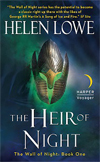
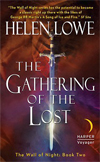
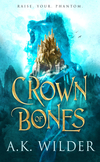
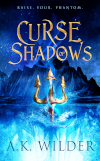
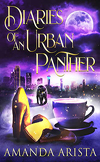
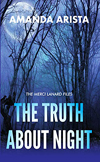

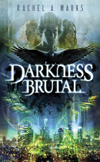
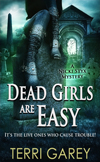
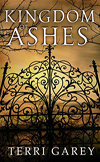
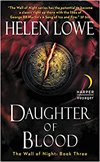
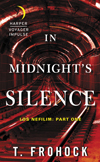
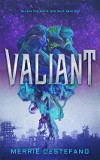
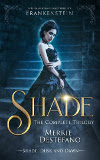

6 comments:
A fascinating discussion on world building, Helen, something at which both you and Robin excel.
Thanks, Dakota -- coming from you that's a real compliment! :)
Thanks for this, Helen. It's so engaging to listen to you both! I agree with Dakota, your world is vivid and real as can be!
Thanks, Kim. Looking forward to talking to you more soon about Path of the Stray & your two interrelated worlds--Gaela and a future dystopian Earth.
Helen,
I really enjoyed the discussion on world building. It's amazing just how many details it takes to set up an alternate world.
Thanks again for the post.
Bonnie
Hi Bonnie, so glad you enjoyed.:)
Post a Comment